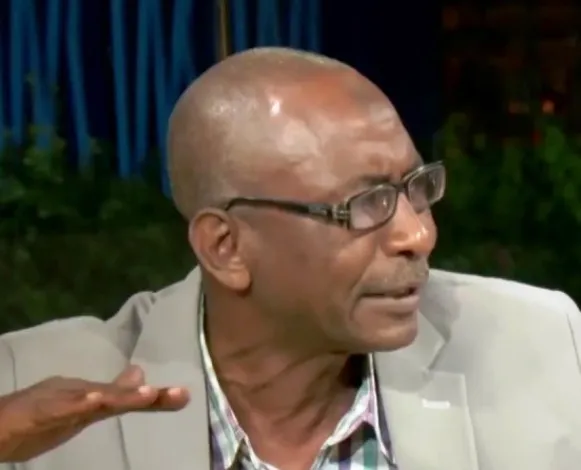Do you remember the maker of the Sudanese theater audience?

Alsir Alsayed
In a few days, the 19th anniversary of the passing of the people’s artist, Mr. Al-Fadil Saeed, 1937 – June 10, 2005…the artist who provided a brilliant example for the intellectual, the “critic” concerned with the issues of his people, and the “independent” theatrical…we recall his memory here due to a real need for the way he looked at art of theater and the way in which this art was practiced, with it we stand on the verge of a theatrical experience, but rather on a theatrical project whose most important features are transformation, diversity and continuity, since from its beginnings in the second half of the fifties of the last century until the death of its creator during a theatrical trip to the city
Port Sudan’s ultimate goal was to delve deeply into addressing (the theatrical process), starting with the topics discussed in this project, passing through the methods of constructing the show and ending with the formulas for producing and marketing the show.
At a very early age, Al-Fadil Saeed invented “improvisation” as a formula for making the show, to implicitly bring about a qualitative shift in the way “the actor works” and his position in the theatrical process, and a qualitative shift in the category of “the audience’s position” and the methods of reception. With this innovation, he well deserved the leadership, not only in Sudan, but on the international level of Arab, African and international, as this formula and the transformations it entailed in the construction of the show later formed a basic bet and a central question in the theorizing of theatrical presentation.
With Mr. Saeed, that country is revealed in its breadth, security, security, tolerance, liberality, and openness. He is the undisputed pioneer who moved the theater from square to square, from village to village, and from city to city in all parts of Sudan, and he found warmth wherever he went and stayed.
In his many plays, we see a soft and rough observation of everything that hinders human development, such as discrimination, political tyranny, injustice, and oppression. We sense it through his three heroes, with their diverse semantic loads, “Bit Qadim, Al-Ajab, and Kartoub.” Among some of what these plays expressed, very early on, is “Corruption In Civil Service,” “Women’s Right to Work,” “The Conflict between the Old and the New,” “The Dominance of Patriarchal Culture,” and other issues and topics.
No discussion of the honorable artist Saeed is complete without referring to the great popularity that his theater enjoyed and without referring to his independence from the official theater institution that made him and the theater, despite the hardship it suffered, one of the sources of national income and enabled him to enjoy a power that was not available to other playwrights.
On the nineteenth anniversary of his passing, his presence among us is renewed and our urgent need for him is confirmed, as the honorable Saeed is our contemporary.
May peace be upon him among the immortals, and may God’s satisfaction descend upon him.



